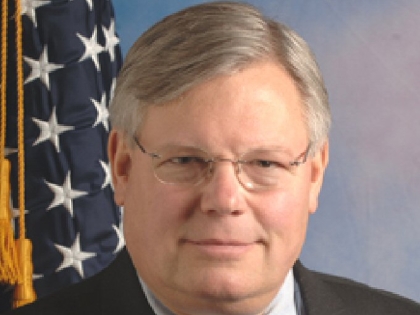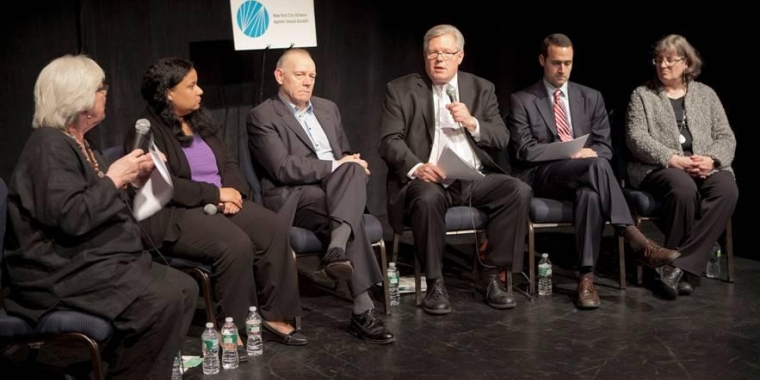
Speaking Out Against Child Sexual Abuse
Thomas K. Duane
December 16, 2011

On December 15, I was honored to participate in a panel discussion on child sexual abuse, convened by the New York City Alliance Against Sexual Assault (“the Alliance”) following a performance of James X, a critically acclaimed play about the institutional child abuse scandal in Ireland.
The 75-minute one-man show was directed by Gabriel Byrne and written and performed by Gerard Mannix Flynn, who also participated in the post-performance panel.
In the wake of recent child sexual abuse scandals at Penn State and Syracuse University, the Alliance, led by Executive Director Mary Haviland, felt it was important to bring the New York City community together to discuss the issue, and to explore ways to improve services and care for young victims of sexual abuse in New York City.
Asked what I think can be done to prevent sexual violence from taking place in institutions in the future, I noted that there is no legislation that could completely eliminate abuse by persons in a position of trust. After all, murder is illegal with stiff penalties and it still occurs. However, stiff penalties will be a strong deterrent and will get abusers away from the public quicker, preventing them from doing more damage.
We also must acknowledge that it is impossible and unacceptable for institutions to police themselves. The government needs to step in and create serious consequences for those who do not report abuses to law enforcement in a timely fashion. Since 2003, I have introduced legislation that makes it a felony for mandated reporters to systematically fail to report abuse. We also need to expand significantly the list of mandated reporters.
Another important action the New York State Legislature must take is to expand the civil and criminal statute of limitations (“SOL”) for survivors of childhood sexual abuse. I have legislation which would reflect a more realistic SOL. Most people do not come to terms with their childhood abuse until much later in life yet current law only gives individuals until age 23 to come forward. My bill would only start the SOL clock three years from the time an individual realizes or should have realized that he or she was abused. That is, someone who was abused at age 12 but didn’t realize the damage until age 40 would have three years from that time to come forward, i.e., to age 43. However, my bill requires that a licensed therapist certify the legitimacy of the realization before any suit could be brought.
I also think there should be a one year window for those abused whose SOL ran out years ago. California did this in 2003 and it did not, as feared, bankrupt churches or other institutions. Those California churches that did declare bankruptcy did so preemptively to avoid disclosure and prevent fair payment of economic damages. Lawsuits are important not only for the victim’s own validation and healing but also for the associated document discovery which shows the wider community what institutions knew about an abuser and when they knew it.
The panel, moderated by Susan Xenarios, MS, LCSW, Director of St. Luke’s-Roosevelt Crime Victims Treatment Center, also included Billye Jones Mulraine, LCSW, Director of the Child Sexual Abuse Treatment and Prevention Program at Kingsbridge Heights Community Center; Robert Hettleman, Chief of the New York County District Attorney’s Child Abuse Unit; and Karen Baker, LMSW, Director of the National Sexual Violence Resource Center.
For more information on the New York City Alliance Against Sexual Assault please visit www.svfreenyc.org.
Share this Article or Press Release
Newsroom
Go to NewsroomOUR TOWN: Seniors Voice Concerns on SBS and Bike Lanes
December 22, 2010
Submitting Testimony to Protect New York City’s Vulnerable Waterfronts
December 13, 2010
Moving Forward in the Fight Against Fracking
December 12, 2010
NYU Faces Opposition To Greenwich Village Expansion
December 6, 2010